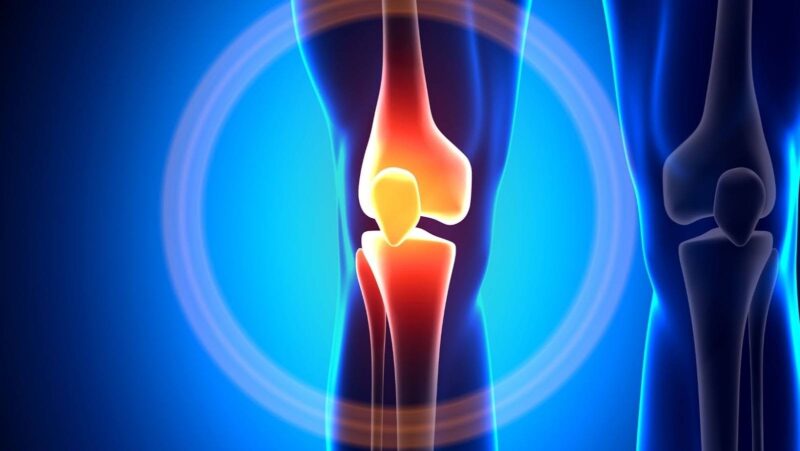
Taking care of prostate health is an important concern for many men as they age. Research shows that maintaining a balanced diet rich in vitamins and minerals can benefit prostate well-being. While a healthy diet provides a lot of these necessary nutrients, some men turn to supplements for prostate health to guarantee they are getting what they need.
Prostate-friendly vitamins such as vitamin D and zinc might play a role in supporting prostate health. Some men may also benefit from natural solutions that help reduce certain symptoms. These solutions may include prostate health supplements that offer an alternative way to support prostate function. Understanding which vitamins are beneficial can help in making informed choices about supplement intake.
Saw Palmetto Extract
Saw Palmetto Extract is popular for supporting prostate health. It comes from the berries of the saw palmetto tree and is widely used in supplements. One key benefit is its ability to help reduce urinary symptoms related to benign prostatic hyperplasia (BPH).
BPH is a common condition that affects many older men. Saw palmetto works by reducing levels of a hormone called dihydrotestosterone (DHT). This can help prevent prostate enlargement, which is often associated with BPH.
Many studies suggest that saw palmetto also supports hair health. By blocking the enzyme that converts testosterone to DHT, it helps reduce hair loss. This makes it an appealing option for those looking to maintain both prostate and hair health.
Some supplements combine saw palmetto with other ingredients like pumpkin seed oil or vitamins. These blends may offer additional benefits for overall prostate function. Always consult a healthcare professional before starting any new supplement.
Pygeum Bark
Pygeum bark comes from the African cherry tree, known scientifically as Prunus africanum. Traditionally, this bark has been used in Africa for its health benefits. It is gaining popularity in modern medicine for its role in supporting prostate health. Research has shown its potential in managing symptoms of Benign Prostatic Hyperplasia (BPH) like frequent urination.
People often take pygeum bark as a supplement to support prostate and urinary health. It may help reduce inflammation and swelling, which can improve urinary flow. These benefits make it a popular choice for men experiencing urinary issues related to an enlarged prostate.
Some studies suggest that pygeum bark might also help reduce the risk of prostate problems in general. It’s important to remember that results can vary, and it’s always a good idea to consult a healthcare professional before starting any new supplement regimen.
Zinc Citrate
Zinc citrate is a form of zinc supplement known for its good absorption. It is often preferred by those who are concerned with supporting their prostate health. This form of zinc is usually gentle on the stomach, making it a convenient choice for many.
Men looking to maintain their prostate health might consider adding zinc citrate to their daily routine. Research shows that zinc is important for prostate function. An adequate amount of zinc can help maintain a healthy prostate, potentially reducing the risk of problems as they age.
The recommended amount of zinc citrate can vary. While the basic dietary allowance is about 11 mg per day for adult men, some may need more. To guarantee the right dosage, consultation with a healthcare provider is often suggested.
Taking zinc citrate as a supplement is easy since it is widely available in various products. It can be found in grocery stores or online, making it accessible to most people.
Pumpkin Seed Oil
Pumpkin seed oil is known for its potential benefits in supporting prostate health. It is rich in nutrients like zinc, which is important for maintaining normal prostate function. The oil is also believed to help reduce the size of the prostate and alleviate symptoms of enlargement.
Research has shown that pumpkin seed oil might improve urinary function and reduce inflammation. Studies such as those published in Urologia Internationalis highlight noticeable improvements in symptoms of benign prostatic hyperplasia (BPH) among men consuming the oil. Its nutrients also play a role in maintaining overall wellness.
When looking to support prostate health, pumpkin seed oil can be a part of a balanced diet. It provides a natural option for those seeking to manage prostate-related issues.
Vitamin D3
Vitamin D3 is important for prostate health. This vitamin helps the body absorb calcium and phosphate, which are necessary for bone health and various bodily functions.
This nutrient can be obtained naturally from sunlight. Spending time outdoors can help the body produce vitamin D3. It’s also important to balance sun exposure with skin protection to avoid harmful UV rays.

Vitamin D3 can be taken through supplements, especially where sunlight isn’t plentiful. Many doctors recommend checking vitamin D levels and using supplements when needed. This helps maintain healthy vitamin D3 levels year-round.
Research shows a connection between vitamin D3 and prostate health. Vitamin D3 may support prostate health and possibly lower prostate cancer risk. This makes it a popular choice among men looking to support their prostate.
Vitamin D3 derived from lanolin has no lanolin in the end product. The process involves synthesizing the vitamin from a molecule found in lanolin, a fat in sheep wool. This makes it suitable for supplements.
Conclusion
Prostate health is important for men of all ages. Vitamins and nutrients like Vitamin D, Vitamin E, and zinc play a role in maintaining this health. These can help reduce the risk of prostate issues. Including these in a daily diet can be beneficial. Choosing the right vitamins can support overall wellness. Regular check-ups and consultations with healthcare providers remain important.











